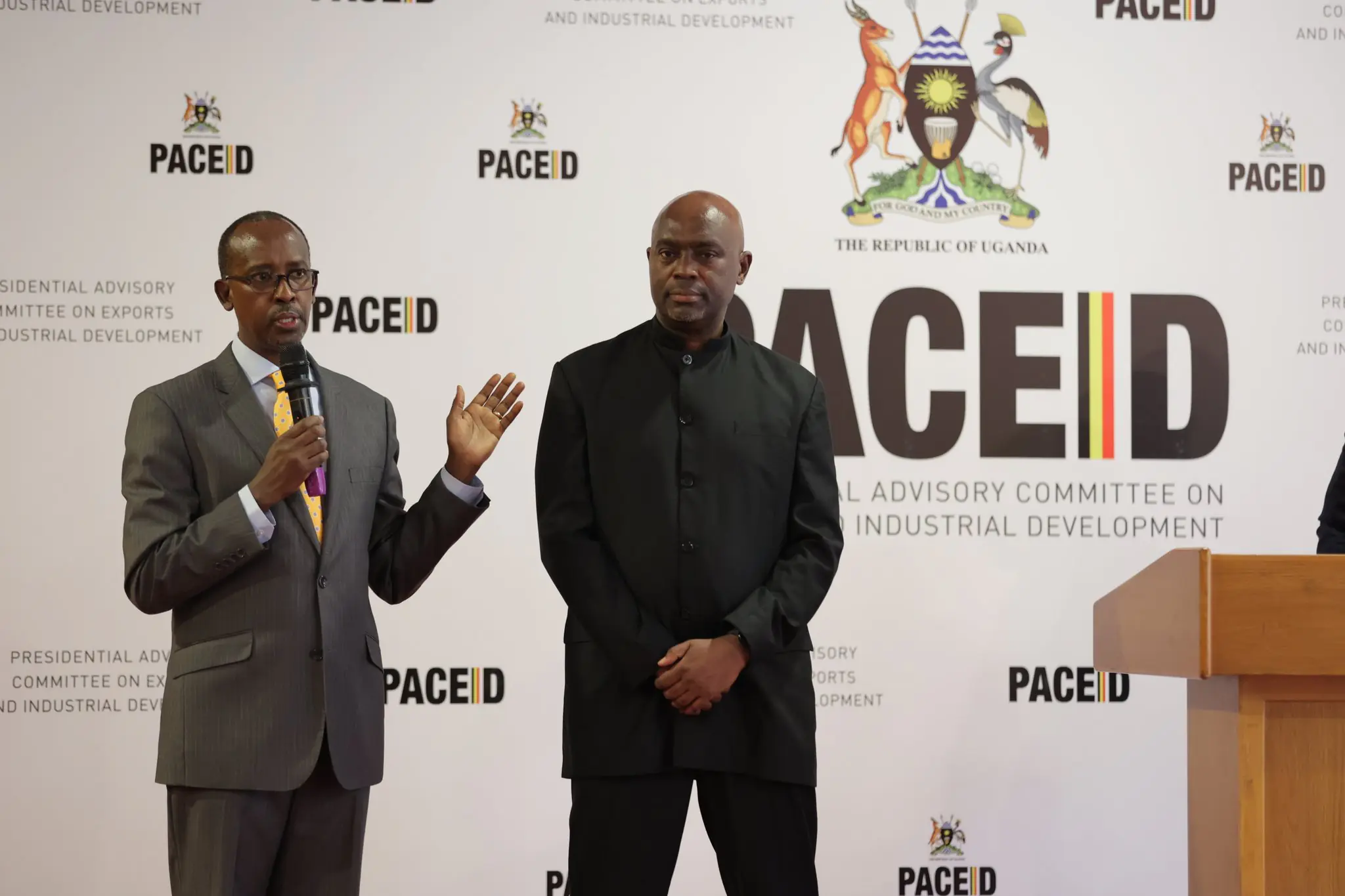Uganda has formally presented its case for reinstatement into the African Growth and Opportunity Act (AGOA) trade preference scheme at a public hearing held on Friday, July 18, 2025, at the Office of the United States Trade Representative (USTR) in Washington, D.C. The midterm review was hosted at 1724 F Street, N.W., and featured testimony and deliberations led by Jeremy Streatfeild, Director for African Affairs and Chair of the AGOA Implementation Subcommittee.
Dr. Oliver Kamanzi, Uganda’s Trade Representative in the United States, presented the country’s position on behalf of the Presidential Advisory Committee on Exports and Industrial Development (PACEID). He urged U.S. officials to reconsider the 2024 suspension of AGOA benefits, citing trade losses, economic hardship, and a commitment to continued dialogue.
The AGOA Implementation Subcommittee included representatives from key U.S. government institutions: Alyssa Morris, Economic Bureau’s Office of Bilateral Trade Affairs, Department of State, Will L’Estrange, Senior Trade Advisor, Foreign Agricultural Service, U.S. Department of Agriculture, and Yi Yang, International Economist, Trade and Investment Policy, U.S. Department of the Treasury.

PACEID Chairman Odrek Rwabwogo with Dr. Olivier Kamanzi, Uganda’s Trade Representative in the U.S.
Uganda also shared a working paper with U.S. counterparts outlining its policy direction, investment climate, and intent to remain a constructive partner in regional and international trade.
“Uganda is not asking for leniency; we are asking for a fair hearing. We want to be judged on the totality of our economic reforms, private sector development, and trade performance,” said Dr. Kamanzi during his testimony.
The Stakes for Uganda
The AGOA suspension, announced on January 1, 2024, followed a 2023 USTR determination that Uganda was in breach of eligibility conditions related human rights abuses stemming from the Anti-Homosexuality Act. The action immediately subjected a wide range of Ugandan exports, including cut flowers, leather goods, textiles, and specialty foods, to standard U.S. tariffs, overturning previous duty-free, quota-free market access.
Since the suspension, Uganda’s exports to the United States declined by 2%, from USD 617.4 million in 2023 to USD 605.6 million in 2024. Key export products experienced sharp drops:
- Coffee fell from USD 55 million to USD 16.9 million
- Casein from USD 9.5 million to USD 5.5 million
- Vanilla from USD 3.2 million to USD 2.4 million
- Oilcake from USD 5.5 million to USD 2.2 million
Additionally, in April 2025, the U.S. imposed a 10% import tariff on all Ugandan goods, making the situation even more challenging.
Exporters Feel the Pinch
PACEID Chairman Odrek Rwabwogo emphasized the ripple effects across Uganda’s economy: “AGOA was never just about market access, it was a pillar of economic inclusion. The suspension has disrupted supply chains, caused job losses, and discouraged investment. We believe Uganda and the U.S. can address any disagreements through open, principled dialogue,” Rwabwogo said.
Coffee exporters reported reduced competitiveness due to the blanket 10% U.S. tariff. “The extra cost is passed on to wholesalers and retailers, making Ugandan coffee less attractive in the U.S. market. This is especially painful when we enjoy 0% tariffs in the EU and Middle East,” said one exporter.
Leather exporters highlighted mass layoffs and a shift to less scalable online sales, while Moringa producers reported a collapse of their smallholder farmer networks after losing both AGOA and USAID funding support.
Speaking on behalf of Uganda’s private sector, Simon Musisi of The Simons Uga Ltd, a vanilla exporter notes that, vanilla exporters, who had been earning up to USD 25 per kilogram, now fetch as low as USD 15 per kilogram due to falling demand in the U.S. market. “Some producers are turning to niche organic markets, which command up to USD 50 per kilogram, though volumes remain limited.”
Resilience in 2025, but Uncertainty Looms
Despite these setbacks, Uganda has seen a modest rebound in early 2025. From January to April alone, the country earned:
- USD 32.5 million from coffee exports
- USD 28.4 million from cocoa
- USD 2.8 million from vanilla
However, Rwabwogo has cautioned that this recovery may not be sustainable under the continued 10% U.S. tariff regime. “Uganda’s exporters are resilient. But without AGOA, we risk long-term damage to export-oriented industries and the rural livelihoods they support,” he said.
Uganda’s Engagement with the U.S.
PACEID, in coordination with the Ministries of Trade, Foreign Affairs, and private sector players, has maintained consistent engagement with U.S. stakeholders. Since late 2023, Uganda’s delegation has met with the USTR, members of Congress, U.S. think tanks such as the Hudson Institute, and media outlets including The Washington Post and New York Times to explain Uganda’s economic and governance stance.
A Call for Reengagement
Uganda’s message at the USTR hearing was clear: AGOA remains a critical platform for Uganda’s industrialization, job creation, and export diversification. The suspension has unintended consequences not just for Ugandan businesses, but for American importers, retailers, and consumers who value Uganda’s high-quality agricultural and manufactured goods.
“We reaffirm our commitment to the goals of AGOA and urge the U.S. government to reinstate Uganda’s eligibility. Let us continue building this trade partnership on shared interests, mutual benefit, and respectful engagement,” said Rwabwogo.
Uganda will reengage with the USTR officials on July 31, 2025.
As the U.S. government considers Uganda’s request, thousands of Ugandan farmers, processors, and exporters wait in hope that one of Africa’s most promising export economies will regain its vital access to the American market.
